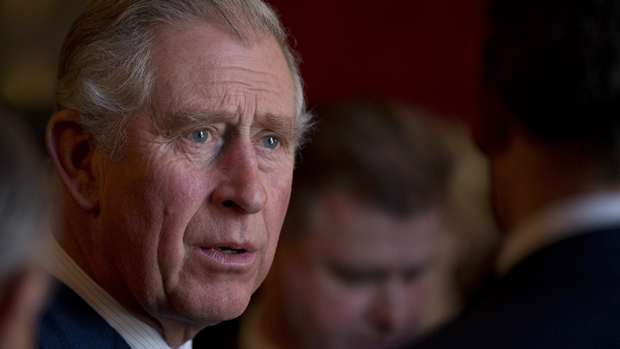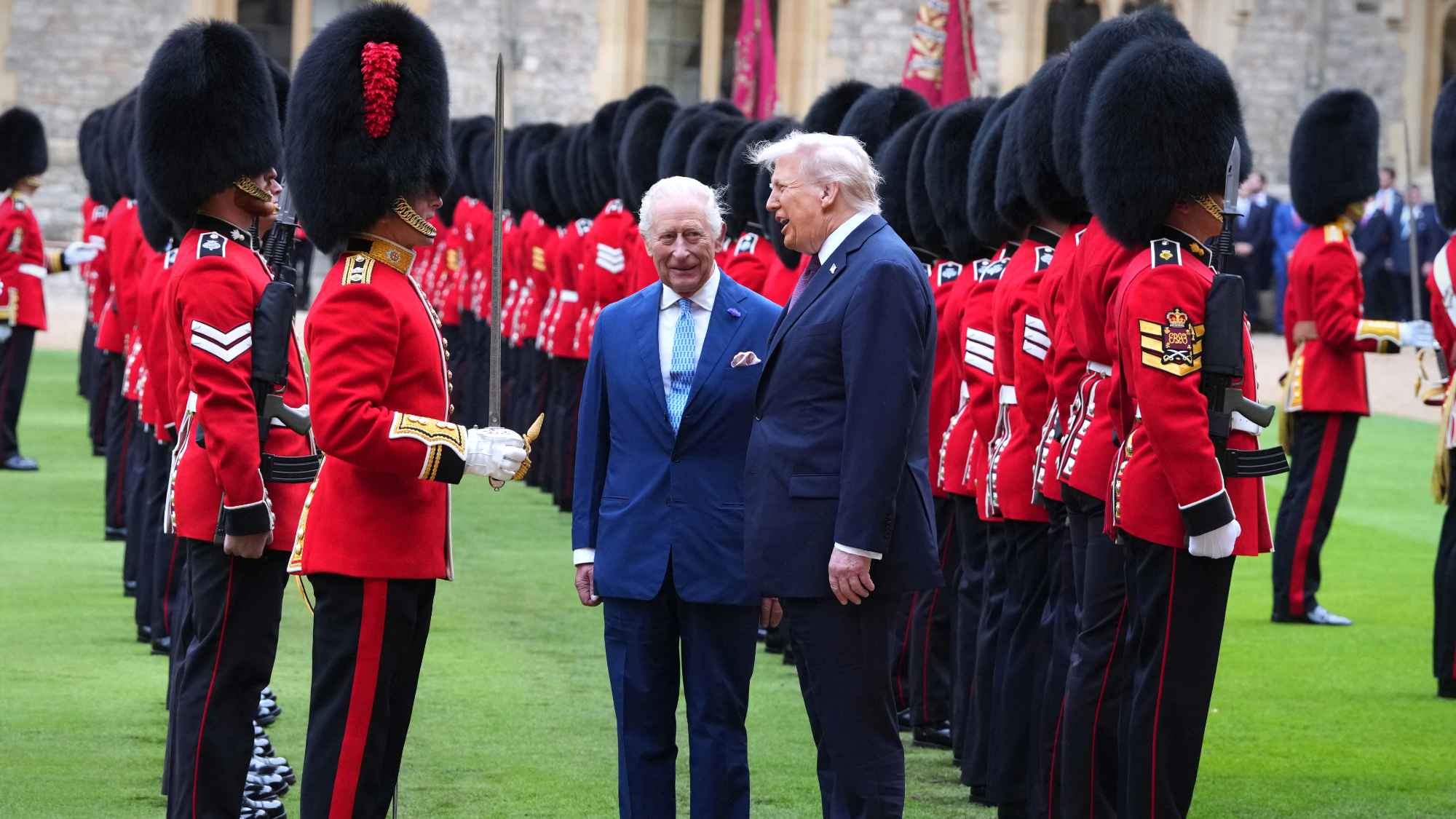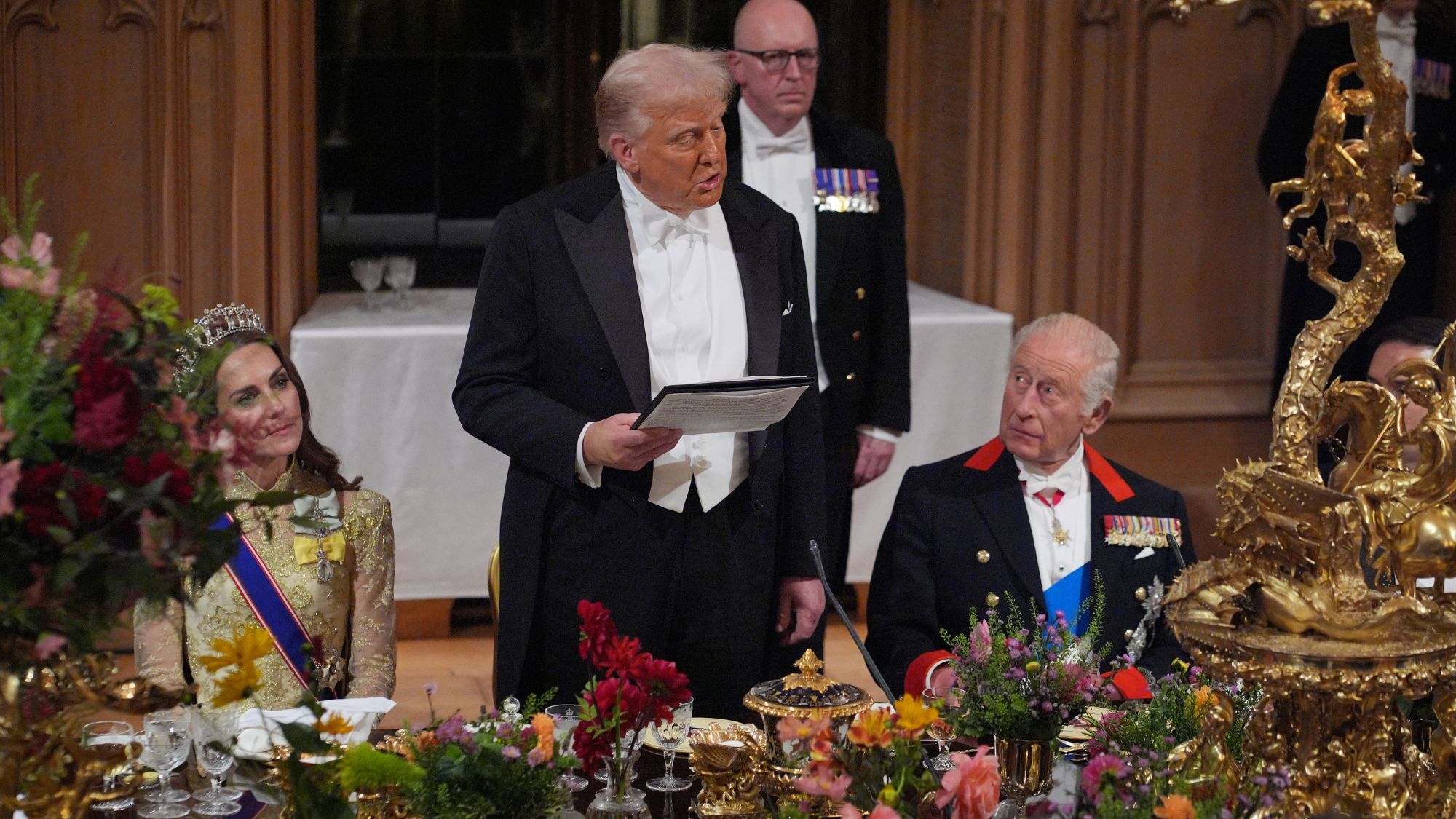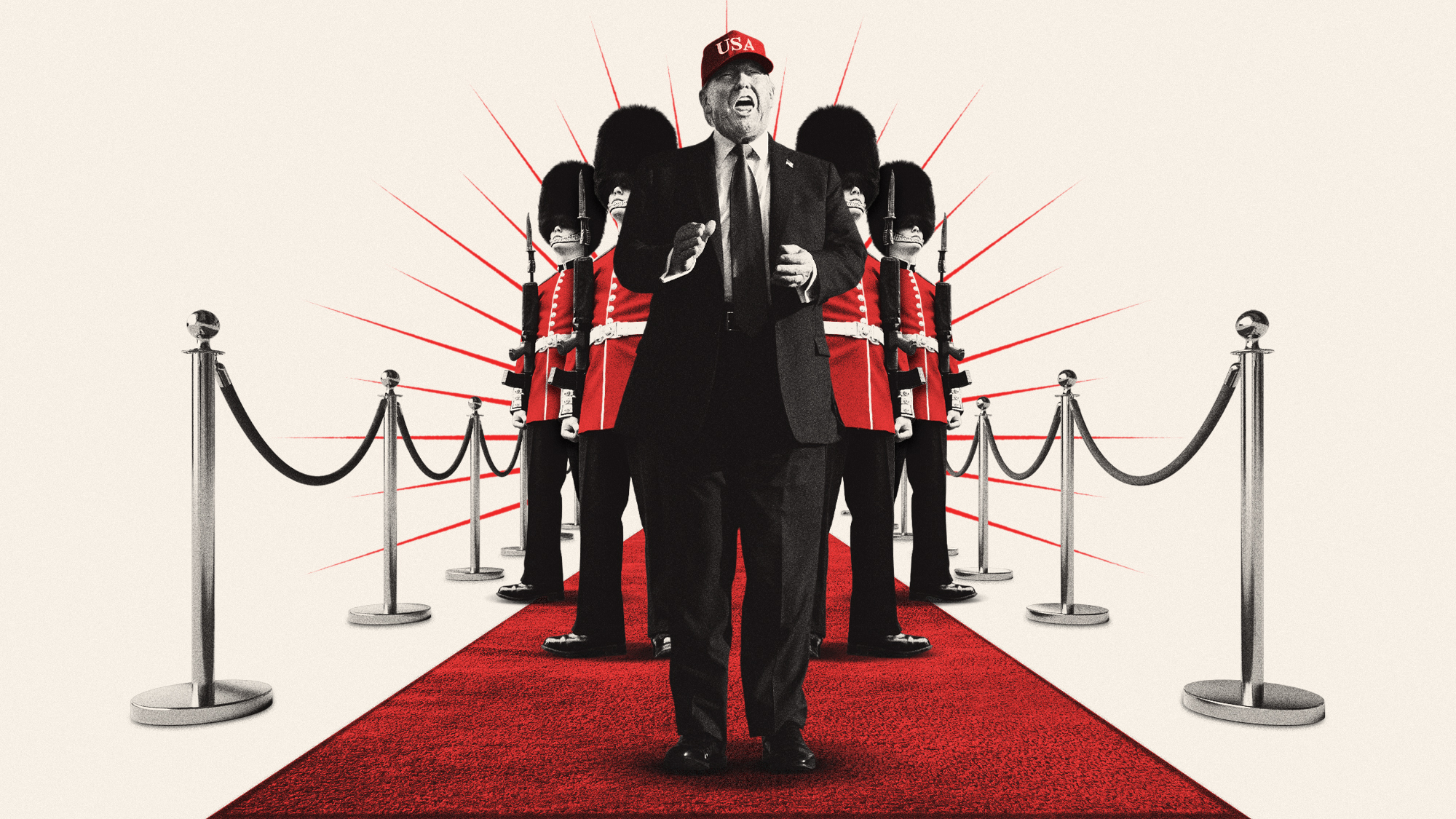Black spider memos: Prince Charles's secret letters published
Sources insist the letters sent to government ministers 'are much more boring than people think they are'

A free daily email with the biggest news stories of the day – and the best features from TheWeek.com
You are now subscribed
Your newsletter sign-up was successful
Private letters sent by Prince Charles to several government ministers have been published, bringing an end to a decade-long battle between the government and a Guardian journalist.
Reporters poring over the letters, nicknamed the "black spider memos" because of his characteristic handwriting, have so far found little to excite their interest.
"Prince Charles wrote to ministers almost exclusively on matters that are well known to be his closely-held personal interests," says The Guardian, which campaigned for more than a decade to have the letters released. "Farming, the environment, armed forces, supermarkets, architecture, schools, Prince's Foundation projects, badger culling and even Patagonian toothfish and albatrosses."
The Week
Escape your echo chamber. Get the facts behind the news, plus analysis from multiple perspectives.

Sign up for The Week's Free Newsletters
From our morning news briefing to a weekly Good News Newsletter, get the best of The Week delivered directly to your inbox.
From our morning news briefing to a weekly Good News Newsletter, get the best of The Week delivered directly to your inbox.
The most controversial passage identified so far appears to be a claim that British troops in Iraq were underequipped. "I fear that ... our armed forces are being asked to do an extremely challenging job particularly in Iraq without the necessary resources," he wrote to Tony Blair in 2004.
Clarence House said in a statement: "The Prince of Wales cares deeply about this country, and tries to use his unique position to help others. He has devoted most of his working life to helping individuals and organisations, to make a difference for the better of this country and the world."
Dan Sabbagh, The Guardian's national editor, suggested on Twitter that the prince had "wasted taxpayers' money fighting The Guardian".
Prior to publication the secret letters had been said to contain the prince's "most deeply held personal views and beliefs", which the government argued might affect his position of political neutrality, but The Guardian has long called the failure to publish the letters "a right royal cover-up".
A free daily email with the biggest news stories of the day – and the best features from TheWeek.com
The future king was said to be "calm" about their publication, believing that they contain "no bombshells" that will embarrass him, sources told the Daily Telegraph before the letters were released. "They are much more boring than people think they are," the source said.
Earlier today, the prince brushed off Channel 4 reporter Michael Crick, describing his questions about the letters as "predictable".
The Cabinet Office has published 27 letters sent to several government departments, but only ten of them were sent from the prince himself and the rest were written by his aides, the newspaper reports. They were published at 4pm, with "provisional redactions" in order to protect the personal data of third parties.
Their release follows a Supreme Court ruling in March which said the government's repeated attempt to conceal the letters was unlawful. The ruling represented a major victory for The Guardian as well as freedom of information campaigners. Clarence House responded to the ruling by saying it was "disappointed the principle of privacy had not been upheld"
What are the black spider memos?
Named after the prince's distinctive "dark, longhand scrawl", the letters were sent by Prince Charles to several government ministers between September 2004 and April 2005. The 27 letters, marked private and confidential, were written expressing the prince's views on various aspects of government policy, according to The Guardian. They were sent to ministers in the Cabinet Office, and the departments covering business, health, schools, environment, culture and Northern Ireland.
How did it all begin?
The battle, described as a game of "judicial ping-pong" began back in 2005, when Guardian journalist Rob Evans submitted an official request to see the memos. Evans's request was initially denied by the information commissioner, but several legal rulings have since followed:
- In September 2012, the Upper Tribunal ruled that the Prince's "advocacy correspondence" (27 out of 30 letters) could be made public
- The ministers involved accepted the decision, but attorney general Dominic Grieve imposed a veto on publishing them
- In March 2014, a unanimous Court of Appeal ruling found that Grieve had "no good reason" for using his ministerial veto
- Since November 2014, the Supreme Court has been examining whether the government had the legal power to veto the publication of the letters
Why was their publication vetoed?
The then attorney general Dominic Grieve said that the letters reflected the prince's "most deeply held personal views and beliefs" and were in many cases "particularly frank", but insisted that there was "nothing improper" in the nature or contents of the letters.
Backed by the cabinet, Grieve argued that revealing the letters could create constitutional problems, as the monarch could not be seen to favour a political party or get involved in political wrangling. He said that any perception that Prince Charles disagreed with ministers "would be seriously damaging to his role as future monarch," reports Reuters.
Last year the government also claimed that publishing the letters would infringe the prince's freedom of expression. "Everyone has the right to respect for their correspondence. Such respect is necessary not only as an aspect of privacy, but also to enable freedom of expression, " James Eadie QC, for the government told The Independent.
What reasons are there for publishing the letters?
"It seems to us that the reasons Dominic Grieve gives for vetoing the publication of Prince Charles's letters are the very reasons that we, the public, should insist on seeing them," writes one Guardian reader.
Prince Charles has often been accused of "meddling" in government affairs, something he prefers to call "mobilising", says The Guardian's Robert Booth. There is growing concern about the extent of his powers among the public and fears that he could be exploiting his position by lobbying government ministers. Anyone trying to understand how far his influence extends "quickly discovers that an edifice of state-enabled secrecy surrounds the prince's power", he says.
-
 Local elections 2026: where are they and who is expected to win?
Local elections 2026: where are they and who is expected to win?The Explainer Labour is braced for heavy losses and U-turn on postponing some council elections hasn’t helped the party’s prospects
-
 6 of the world’s most accessible destinations
6 of the world’s most accessible destinationsThe Week Recommends Experience all of Berlin, Singapore and Sydney
-
 How the FCC’s ‘equal time’ rule works
How the FCC’s ‘equal time’ rule worksIn the Spotlight The law is at the heart of the Colbert-CBS conflict
-
 Local elections 2026: where are they and who is expected to win?
Local elections 2026: where are they and who is expected to win?The Explainer Labour is braced for heavy losses and U-turn on postponing some council elections hasn’t helped the party’s prospects
-
 How corrupt is the UK?
How corrupt is the UK?The Explainer Decline in standards ‘risks becoming a defining feature of our political culture’ as Britain falls to lowest ever score on global index
-
 The high street: Britain’s next political battleground?
The high street: Britain’s next political battleground?In the Spotlight Mass closure of shops and influx of organised crime are fuelling voter anger, and offer an opening for Reform UK
-
 Is a Reform-Tory pact becoming more likely?
Is a Reform-Tory pact becoming more likely?Today’s Big Question Nigel Farage’s party is ahead in the polls but still falls well short of a Commons majority, while Conservatives are still losing MPs to Reform
-
 Taking the low road: why the SNP is still standing strong
Taking the low road: why the SNP is still standing strongTalking Point Party is on track for a fifth consecutive victory in May’s Holyrood election, despite controversies and plummeting support
-
 Museum head ousted after Trump sword gift denial
Museum head ousted after Trump sword gift denialSpeed Read Todd Arrington, who led the Dwight D. Eisenhower Presidential Library and Museum, denied the Trump administration a sword from the collection as a gift for King Charles
-
 Trump’s visit: the mouse and the walrus
Trump’s visit: the mouse and the walrusTalking Point Britain is keen to point to its own ‘tangible results’, but the US administration has made their demands clear
-
 Will Donald Trump’s second state visit be a diplomatic disaster?
Will Donald Trump’s second state visit be a diplomatic disaster?Today's Big Question Charlie Kirk shooting, Saturday’s far-right rally and continued Jeffrey Epstein fallout ramps-up risks of already fraught trip